Read Part 1 here and Part 2 here.
The political economy of hunger
The peroration to Part 2 contained a quote from John Galbraith, the widely influential maverick US economist. Galbraith provides the key to the question Stephen Grootes posed in Part 2: “Why are South Africans hungry when there’s surplus food? Galbraith explained, in 1994:
“I was studying agriculture, how to produce better chickens, better cattle… better fruit, better vegetables. … [It then] crossed my mind that there wasn't a hell of a lot of use producing better crops and better livestock if you couldn’t sell them, that the real problem of agriculture was not efficiency in production but the problem of whether you could make money after you produced the stuff. So I shifted from the technical side to, first, the study of agricultural economic issues and then on to economics itself.
“The real problem of agriculture was not efficiency in production but the problem of whether you could make money after you produced the stuff” — I shall be doing no more now than fleshing out this fundamental reality, noting that it remains a worldwide problem often attributed to supposed over-population, as we saw in Part 2.
Reminders of what it means in South Africa include:
A study by the Council for Scientific and Industrial Research (CSIR) in 2021 found one-third of edible food fails to get as far as human mouths every year. The study further found that this is equivalent to 34% of local food production, and, still further, that this loss is equivalent to 45% of the country’s available food supply because South Africa is a net exporter of food.
Inflation merely exacerbates this standard condition where basic food is unaffordable to increasing numbers of people. In a Business Day article headlined “Infrastructure backlogs, transport, load-shedding and fuel issues must be tackled”, Kulani Siweya, chief economist at AgriSA, appeals for urgent government intervention to limit inflation by controlling these input costs.
What Siweya seems to have forgotten — or not know — is that with the intention of making South Africa business-friendly, the ANC as a major member of the Interim Government prior to 1994, was party to making South Africa’s food prices essentially unregulated as part of its subsequent, general deregulation and liberalisation of the economy.
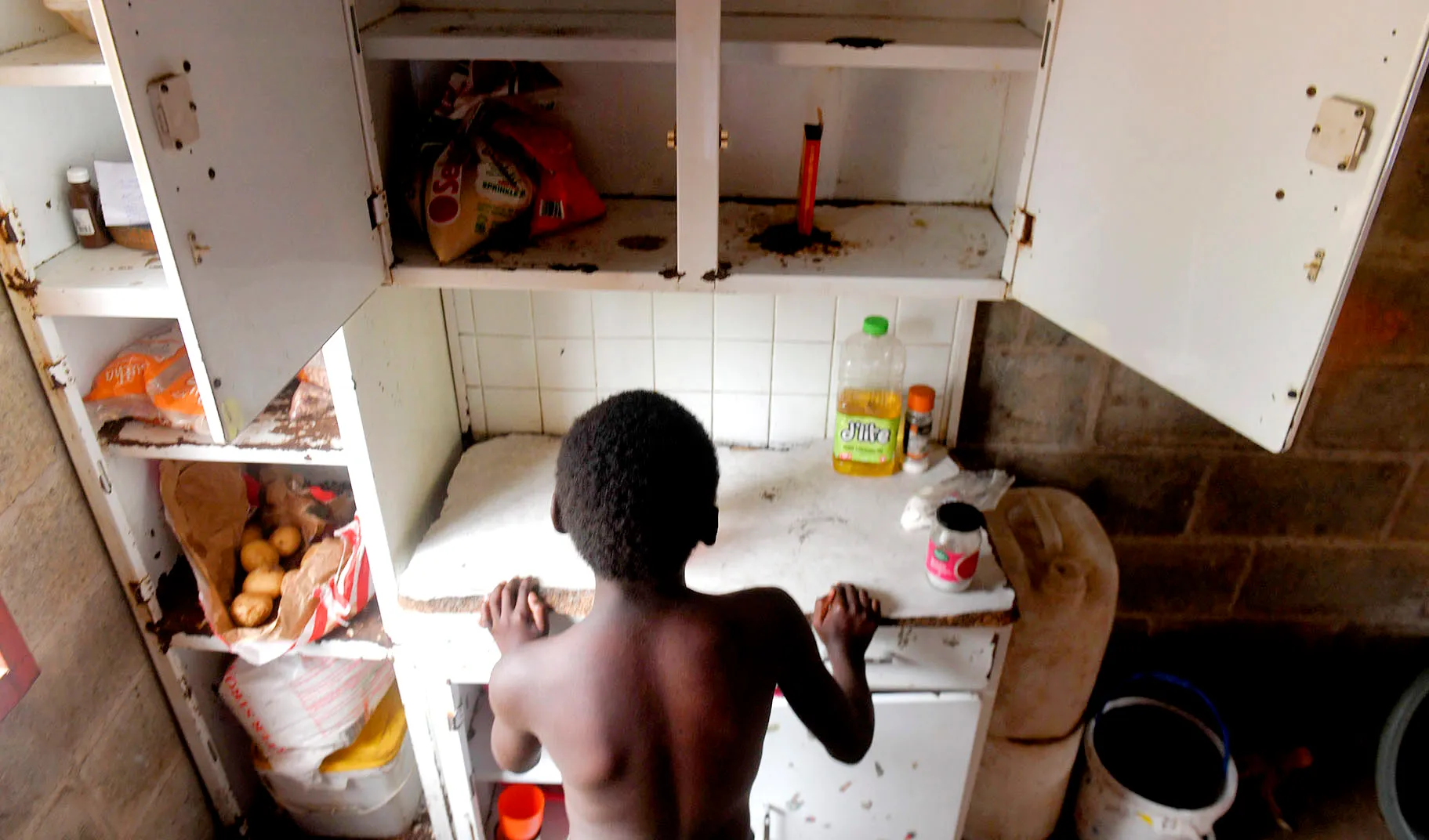 Acute levels of hunger and starvation are rising sharply all over our country, leading to malnutrition, which sadly, goes largely undetected in poor communities. (Photo: Black Star / Spotlight)
Acute levels of hunger and starvation are rising sharply all over our country, leading to malnutrition, which sadly, goes largely undetected in poor communities. (Photo: Black Star / Spotlight)
Sarah Smit makes this clear in her article “Who protects us from rising prices?” She reports that according to a 2021 paper by the Centre of Excellence in Food Security, up until 1993, agricultural commodities were subjected to different kinds of controls under the Marketing Act of 1968. But then deregulation took over.
It “sought to effectively reduce government’s direct role in food price determination and marketing while also encouraging import liberalisation. The minimalist stance of the government regarding market intervention has assisted in ushering in an era of corporate control on food value chains and therefore on the food system”.
62.6% of South Africans live in poverty, with eight million, or 37%, of our children living below the food poverty line (FPL). Child hunger is largely the result of this liberated market — the Child Support Grant (CSG), at R505 per month per child, chooses to ignore the consequences of the unregulated market which leaves the grant 24% lower than the food poverty line, representing the minimum amount needed to spend every month on food for basic nutrition of R760 (also see, here, here and here).
A consequence is filicide, which led to a distraught Director of the Khula Development Community Project, Petros Majola, crying out:
“I am asking myself, what is happening? We buried four kids in Ngcobo, murdered by their mother, and recently we buried three kids and their mother in Butterworth, and today we are burying three kids and their mother.”
As for the children not killed by their mothers, their malnutrition profoundly shapes the rest of their lives. This begins with the stunting that affects 27.5% of children. As Maverick Citizen’s Mark Heywood reports, “paediatricians explain that stunting is due to chronic undernutrition and is very hard to recover from”.
And then they go to schools that further entrench their inequality, with 80-plus pupils per class being standard, and only 20% receiving good early child development and basic education. Little wonder that 81% of our children aged 10 can’t read for meaning. And this is before the government makes still further cuts to the spending on every public-school learner.
It gets even worse.
Malnutrition is not only lack of food but the lack of nutritious food, as the late Prof David Sanders never tired of telling. This brings us back to the market and its deliberate promotion of unhealthy food, not only in South Africa but worldwide. A webinar on the “Regulation of unhealthy food and beverage marketing to children in Africa” organised by the Socio-Economic Rights Project at the University of the Western Cape in October 2023 had speakers from Uganda, Ghana, Kenya and South Africa. The take aways from this webinar, which I attended, include:
- Children are not only exposed to unhealthy food and beverage marketing through advertisements on various media channels, on food packaging, and even within the school environment, but supermarket layouts are specifically designed to promote the sale of these unhealthy foods;
- Campaigns promoting responsible marketing are widespread in Africa;
- But, other than what is claimed to be the case in South Africa, there are no restrictions on how food is marketed; and
- There is effective pushback from business interests in Kenya, which argue that their profits are good for the Kenyan economy and that regulations would put them at a competitive disadvantage.
The problem of effectively regulating food is global rather than just confined to Africa. The headline, “Britain braces for the worst food bank winter demand yet”, is illustrative.
The problem is so serious that the UN Convention on the Rights of the Child, General comment No 16 (2013) recommends that states take necessary measures including laws and regulations to prevent business enterprises from contributing to the abuse of children’s rights through unhealthy food marketing, including enforcement mechanisms to ensure compliance.
Similarly, the World Health Organisation (WHO) urged governments to develop mandatory restrictions on the marketing of unhealthy food to children.
Business Day’s headline, “Food industry calls for pragmatic approach to label and advert rules” conveys the South African situation. The proposed draft regulations aim to empower people with the information needed to enable them to make informed choices about what they buy and mitigate health-related risks associated with misleading food labels and advertisements.
Yet, our food industry, while, as always, agreeing that consumer protection and public health must be priorities, nonetheless calls for a “pragmatic” approach to the implementation of these regulations. Why?
The previously mentioned UWC webinar was notable for no one asking why selling unhealthy food should ever be questioned: they all just seemed to accept the reality as the way of the world.
For Wandile Sihlobo, Chief Economist of the Agricultural Business Chamber of South Africa, and author of the new book, “A Country of Two Agricultures”, the puzzle is why the agricultural sector “is still marked by inequalities three decades after the onset of democracy”. Understanding this, he says, was his motivation for writing the book. All this is from Ed Stoddard’s Daily Maverick article, “SA needn’t be a country of two agricultures nor an endless battle for equality”.
Indeed, it shouldn’t. The many forms of the corporate control of the entire food chain from seeds to our tables, however, ensure it is.
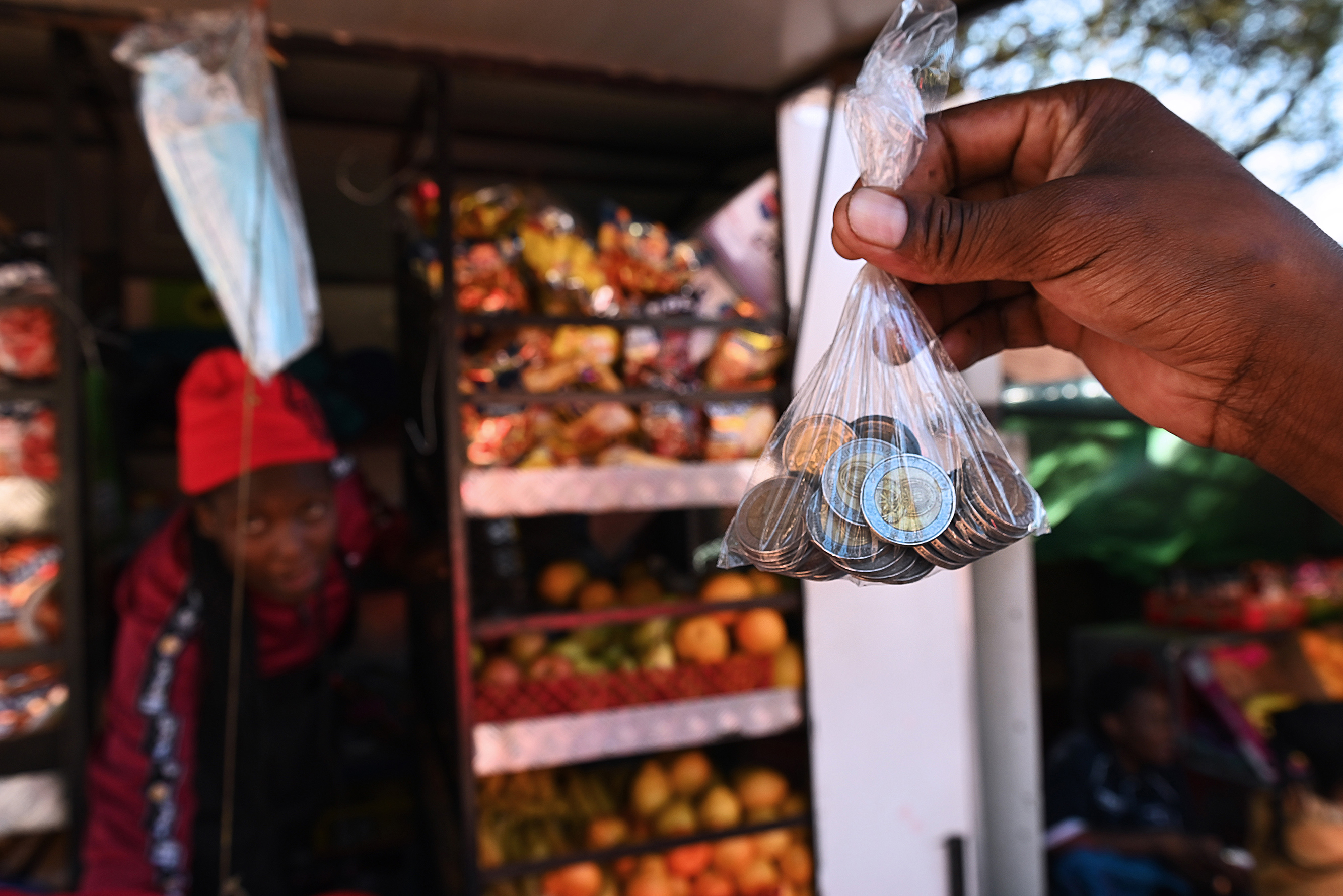 A bag of South African rand coins arranged outside a street vendor's stall in the Sandton district of Johannesburg, South Africa, on Friday, May 12, 2023. Food prices are climbing and many households struggle to afford the basics. (Photo: Leon Sadiki/Bloomberg via Getty Images)
A bag of South African rand coins arranged outside a street vendor's stall in the Sandton district of Johannesburg, South Africa, on Friday, May 12, 2023. Food prices are climbing and many households struggle to afford the basics. (Photo: Leon Sadiki/Bloomberg via Getty Images)
A slew of important further issues emerges from my brief outline of the political economy of hunger. Recall Galbraith’s key insight: “The real problem of agriculture was not efficiency in production but the problem of whether you could make money after you produced the stuff.”
What he doesn’t mention is why food is produced only if it’s likely to result in an acceptable rate of profit. We should also now be able to appreciate that the calls made by the former UN general secretary, Ban Ki-moon, for investment in seed research and the provision of more affordable crop insurance would result in more food being produced by the same market limited by its pursuit of maximum profit.
Like many others, he hasn’t got his head around the fact that unexpectedly good harvests are farmers’ nightmares. The only sense writer Heather Dugmore can make of the absurdity that “ten million tonnes of food wasted a year, but millions in SA go hungry” is to attribute this outrage to “high levels of inefficiency”.
So serious is the problem of seemingly irrational food waste that the CSIR just accepted it as a reality and produced a research report on how to manage the unwanted “surplus” food. The Democratic Alliance has taken it a step further by wanting a formal investigation into Cyril Ramaphosa’s responsibility for South Africa’s starving children.
Above all, when Mark Heywood writes “do the maths, stupid — cost of hunger is far greater than the cost of solving it”, it is clear that we have difficulty accepting that what is stupidity to one group is perfectly rational to another. To the former group it not only makes no sense but is immoral, “because”, in Heywood’s words, “there is enough food for all in South Africa, the epidemic of hunger is entirely unnecessary”.
The only sense he can make of it — as a variation of lacking political will — is that it “exists because of negligence and a lack of care”.
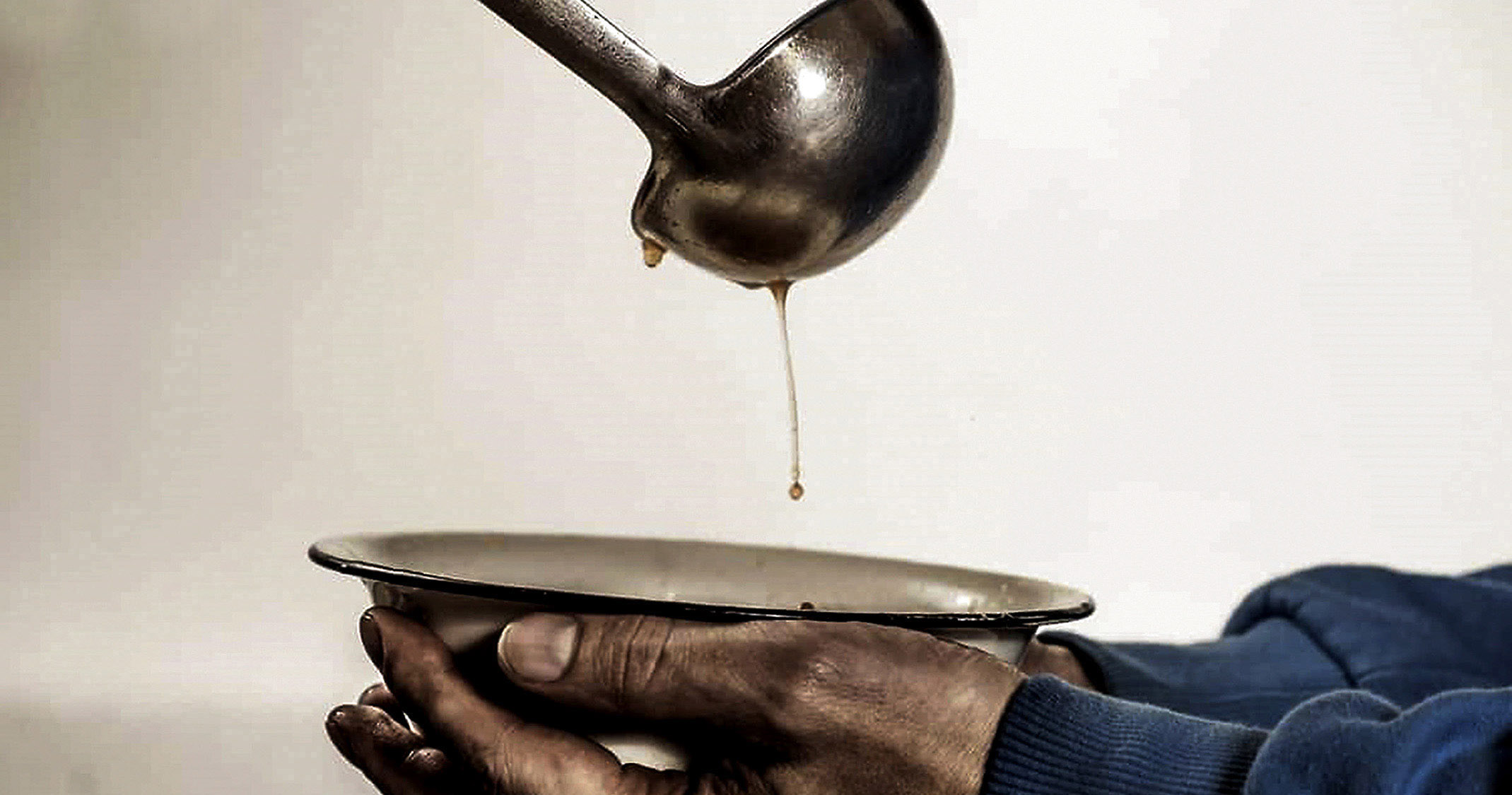 Food prices are soaring and millions of people in South Africa continue to go hungry. (Photo: iStock)
Food prices are soaring and millions of people in South Africa continue to go hungry. (Photo: iStock)
What this suggests is that the political economy of hunger still needs further elaboration. So, too, does the fact that two diametrically opposed explanations of the same issue can both be rational.
Ultimately it depends on one’s understanding of the world and how we view our relationship with the people who make up the world. I agree, on rational terms, that the “market” — in ways still to be explored — is responsible for hunger amidst a fortune of food.
Others, on what for them are equally rational propositions, argue that it is government’s interference with the market that is the cause of the problem. A recent article in Daily Maverick — “Don’t force big retailers to cut profits margins on essential food – there are better ways to fight hunger” by Luke Metelerkamp is but an example of this latter rationality.
The political economy behind the political economy of hunger
So, what is this political economy that I claim turns bountiful harvests into a curse rather than a blessing? I go even further when saying this political economy makes the transition from fossil energy highly unlikely in the limited time climate change still allows.
And this notwithstanding the 61 years since the UN convened its first international conference — the Stockholm Conference — to address the scientific evidence of the damage being done to our environment. Going even further, I claim that the logic of this political economy is such that even a substantial switch to renewable energy — which, as we’ve already seen, is still far away — would still not make a significant impact.
This, among other considerations, is because of the interconnections between climate change and the five other planetary boundaries (out of nine) that are being concurrently endangered by this political economy.
It is now time to answer some of my questions and justify my claims.
How has this political economy been so successful in hiding itself in plain sight for so very long? There is no easy answer. The remainder of Part 3 and the whole of Part 4 will include parts of my answer.
The capitalism we all experience with minimal recognition of what it is
We all experience it. The poverty, wealth, unemployment that we thought were uniquely South African turn out to be universal phenomena, despite the various forms they take in different countries and times.
Moreover, because these three features are all driven by a fourth characteristic, the imperative to maximise profit, all four are concurrent features, despite the variable relative dominance that may exist between them from time to time and in different places.
Inequality is the fifth of capital’s defining characteristics, for wealth production is contingent on the (essentially) simultaneous production of poverty. The sixth and final feature I shall be mentioning is capital’s need for constant growth. To be noted but not developed is that monopoly is the natural state of all current capitalist economies.
Developing this analysis in full is way beyond this already long article. I shall therefore illustrate my contentions with a few familiar examples highlighting the logic of the system.
Waste
We’ve already encountered capitalist waste with food poverty amidst plenty of food. This is only a small part of the waste we encounter every day. Behind these everyday encounters — including those with plastic or the fashion industry — a few words are first warranted about the largely unseen waste built into the foundations of capitalism.
The problem begins with the inequality capitalism produces on the grandest of scales. With almost two-thirds of all new wealth created worldwide since 2020 going to only 1% of the world’s population — which is almost twice that received by the bottom 99% — there simply isn’t enough buying power to sustain existing productive capacity, regardless of the profligacy of the 1%.
This results in an economy (normally) able to produce much more than it can sell. Wastage — in various forms of “too much” is the outcome. Economists refer to this as the plague of overproduction, when the “market” gets its expected suitably profitable demand wrong. Surplus capital is the consequence of a saturated market.
In South Africa, this global feature is mistakenly called an investment “strike”. The outcome of the saturated market is gigantic amounts of capital that, rather than being invested in production — the “real economy” in economic speak — ends up either in banks, because of the greater and safer return that can be provided, or, as the source of the surplus capital that is now behind what is called financialisation — when investing in financial instruments is more profitable than investments in the productive economy.
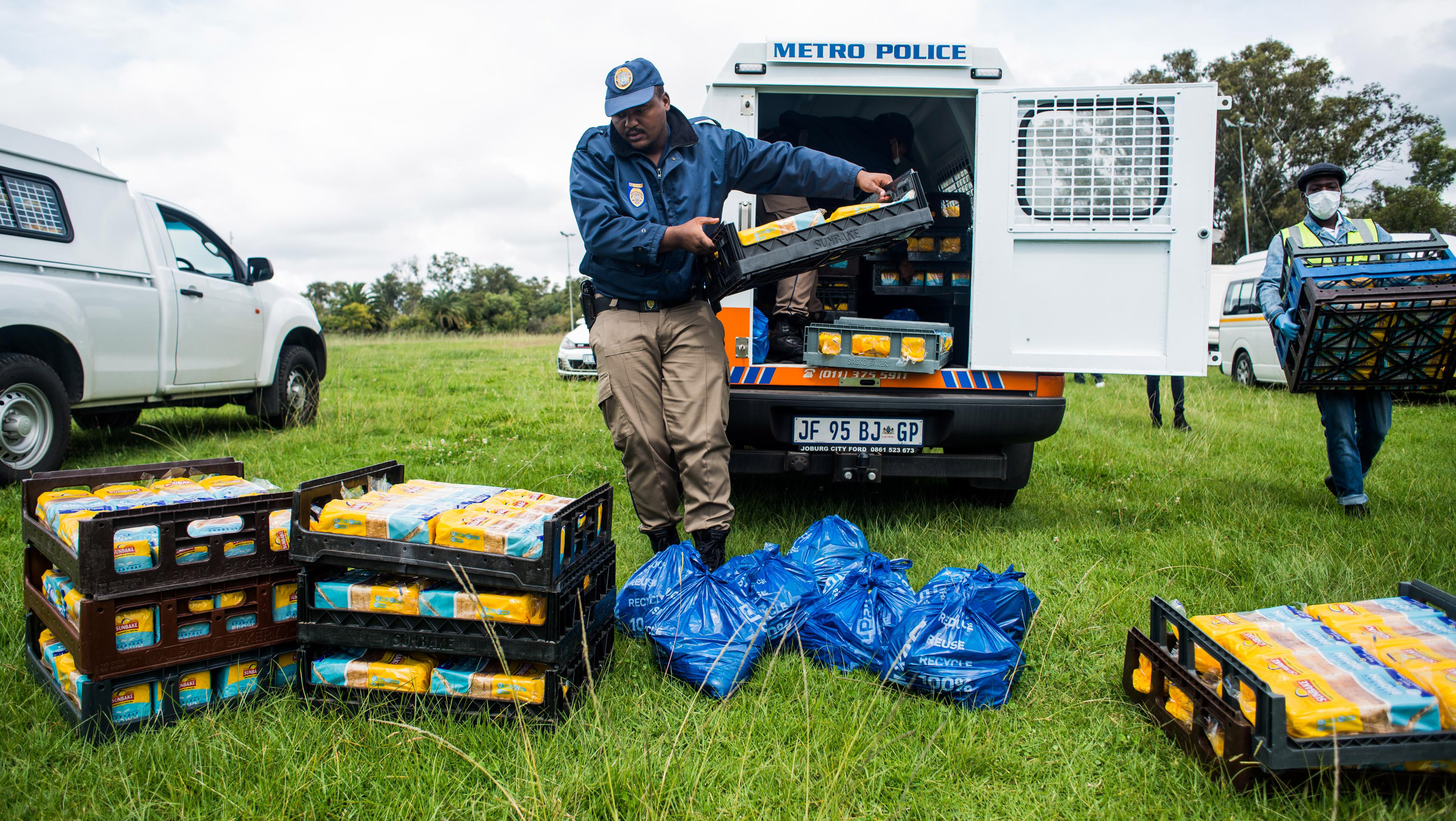 Food parcels are sorted to donate to homeless waste pickers in 2020. (Picture: ER Lombard/ Gallo Images)
Food parcels are sorted to donate to homeless waste pickers in 2020. (Picture: ER Lombard/ Gallo Images)
Another consequence of the emphatically called “surplus” capital is surplus productive capacity, that is, the machinery that is left idle because of supposedly insufficient demand. (These various surpluses are detailed in my Daily Maverick articles such as “Catastrophe capitalism jumps on the electric car bandwagon”). The demand for the unmet basic essentials of life is excluded from this calculation because profit maximisation, not social need, determines what is produced.
Unemployment is among the other unseen daily encounters with capitalist waste. Unemployment, which is everywhere accepted as a fact of life, is more than a waste for the discarded people. For society, the cost is measured in the billions spent on their upkeep along with their education — such as it is in South Africa — until they leave school to become part of the unemployed.
Many of the luckily employed people waste their energy — their labour power — making things to satisfy often artificially manufactured needs, as William Morris, the British textile designer, poet and artist, wrote in his 1885 book, Useful work versus useless toil.
Part of the useless toil is that these commodities are designed to be thrown away, as described by Vance Packard in his 1960 classic, “The Waste Makers”. Advertising is integral to the creation and sale of these commodities. The multi-billions spent on advertising worldwide doesn’t include the wasted time and creativity of the hundreds of thousands employed in this industry.
It also excludes the money increasing numbers of people spend for the privilege of not being exposed to advertisements! (Even the FBI considers adblockers to be necessary, according to the Daily Maverick Newsletter of 8 November 2023.) Additionally excluded is the wasted creativity of the copywriters, artists, actors and filmmakers, who, John Ruskin, after whom Oxford’s Ruskin College is named, had in mind when saying in 1865 that “the whole of your life will have been spent in corrupting public taste and encouraging public wastage”.
In the endless pursuit of maximising profit, capitalism depends on the production of anything, even though some countries do limit this unconditional freedom by banning or restricting the production or distribution of a few items. Drugs and cigarettes are respective examples of both.
The US demonstrates the enormous range of these manufactured needs and the waste that remains undisturbed by the narrow focus on climate change. Americans are predicted to have spent $12.2-billion on Halloween this year, including $700-million on costumes for their pets.
At the other end of this range is what no less a person than a former President of the US, General Dwight Eisenhower, was moved in his farewell address to the nation in 1961 to warn of the danger of what he called the Military-Industrial Complex and its powerful influence in national affairs.
We will return to this issue shortly. For now just note that, in June 2019, the US military was “a bigger polluter than more than 100 countries combined”.
The significance of waste lies not only in its ubiquitous enormity but also in how we come to terms with its various forms. Our adaptations are mostly either to accept it as normal or, taking this normality one step further, seek measures to mitigate the waste rather than eliminate its causes.
A Daily Maverick article — “There are good reasons for recycling that old vape or iPhone lying in your drawer” — by Julia Evans exemplifies both approaches. Placing significant responsibility for what is presented as being the largely unavoidable industrial-scale e-waste, she quotes Patricia Schröder, the CEO and spokesperson of Circular Energy, as saying:
“It starts with consumer choice. We should choose products that are managed correctly or are easily recyclable. Then, once we have finished with our gadget, take responsibility and get that product managed effectively and environmentally soundly” [emphasis added].
Recycling and the related circular economy emerge as measures that take waste as being byproducts of the natural — and implicitly — only economic system available.
Military-Industrial Complex — the essence of capitalist logic
The complex is more accurately the military, industrial and political complex (MIPC). Without the political component, the Complex would be just one of the many competing vested interests. The political dimension not only guarantees the MIPC a huge market but a constantly growing one regardless of cost.
All that is needed is for the political leaders to find a suitable “enemy”. The mainstream media will then do its part, which is, firstly, to play on people’s fears to legitimate the military budget, and to turn any country or particular leader into a Hitler.
Even if none of this leads to war — with war being the MIPC’s heaven because it means the replenishing of supplies — it is always possible to claim that the US military needs more funds to catch up with the “enemy” in one or more important aspects. This was a constant during the so-called Cold War with the then-Soviet Union.
Some basic numbers help give meaning to this abstract analysis. Two-term former Republican Congressman (under Ronald Reagan) David Stockman does exactly this, in his 2022 article “The Warfare State’s Infinitely Mendacious Echo Chamber”.
“It all starts with the number $813-billion,” he writes, which is Joe Biden’s national defence budget for financial year (FY) 2023. In constant dollars, this is 2.2 times larger than Eisenhower’s budget when he gave his 1961 warning.
It is twice the size of Nixon’s FY 1972 defence budget, “notwithstanding” Stockman notes “that Tricky Dick was a dyed-in-the-wool cold war hawk”. Biden’s budget is 1.33 times that of the other cold war warrior, Ronald Reagan. Biden’s budget is 1.5 times larger than the last Cold War defence budget in FY 1990.
The general expectation was that the collapse of the USSR meant a much reduced “defence” budget. That it didn’t, tells us something singularly profound about the MIPC and the political economy it exemplifies.
It also alerts us to the other largely unseen army of civilian government employees, private contractors, consultants and university departments locked into the MIPC. They, too, are integral to “excel[ling] in inventing, spinning, hyping and lying about the national security threats” which justifies the current “defence” budget of $813-billion (R1.524-trillion).
As Stockman further explains, “the US defense budget functions like a self-licking ice cream cone. Endless pockets of research and study money end up funding the think tanks, NGOs and consultants who, in turn, make it their business to fuel a massive threat exaggeration syndrome. And they do so day in and day out focused upon a constantly rotating set of theatres all around the planet.”
And then, there’s the investors.
The morality of making money
Bob Dylan asks the wrong question, in his Masters of War (1963). He wants to know:
Let me ask you one question
Is your money that good?
Will it buy you forgiveness
Do you think that it could?
He personalises the making of money out of war because he doesn’t see that the making of money by the Masters of War is the morality of capitalism. To those who buy into the system, the source of the money doesn’t matter. For most of them, it is sanctified as long as it’s legal. And it’s perfectly legal to invest in highly profitable companies that just happen to make instruments of war.
Actual wars are a godsend for their investors. Quoting from an international journal, with the headline “Arms manufacturers’ stocks surge worldwide following Hamas attack”, Maverick Citizen’s Mark Heywood tells us that as early as 11 October 2023, the stock of Israel’s largest private defence company had surged 37% since the beginning of 2023.
This is why it is mistaken to see it as individual greed. It is the greed normalised by an economic system that would collapse without being constantly fuelled by profit maximisation. (I’ve developed this argument in a Daily Maverick article, “The smoke and mirrors of greed — what lies hidden in plain sight”).
Waste (and the morality that rationalises it) — in the various forms I’ve just covered — is integral to capitalism. Climate change is but a byproduct of this waste. But, like the US military, which would be a (relative) midget without huge political support, it is this political support that ensures that the only change to climate change is to get worse.
This is why leading international organisations like War on Want are right to alert the world just before COP28 that “the fossil fuel industry and rich corporates are ready to turn the COP28 climate summit into another cop-out that protects their profits.”
But this is also why it is wrong. It is our political leaders, not the fossil fuel industry, who will be turning COP28 into a cop-out.
Introduction to Part 4
The need for fundamental system change does not mean that we can’t do anything now. And it most certainly doesn’t mean waiting for a revolution. Even though unemployment, poverty and inequality are universal features of capitalism, South Africa doesn’t have to be among the world’s worst.
With different policies, these plagues can be reduced even in a capitalist South Africa. These policy changes are also needed to save the sinking Eskom. Part 4 covers these changes. DM
Jeff Rudin works at the Alternative Information & Development Centre (AIDC).




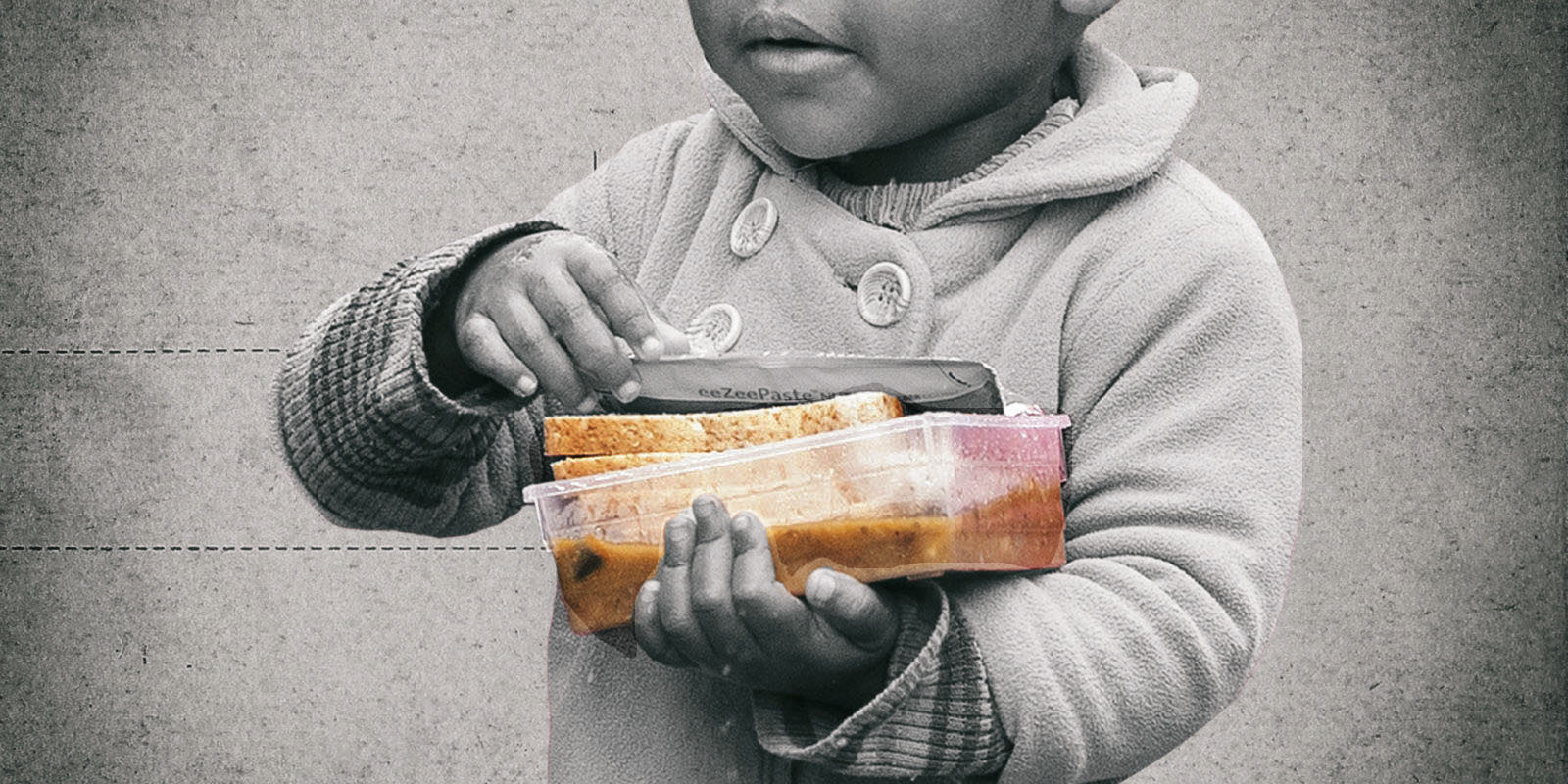 Food parcels are sorted to donate to homeless waste pickers in 2020. (Picture: ER Lombard/ Gallo Images)
Food parcels are sorted to donate to homeless waste pickers in 2020. (Picture: ER Lombard/ Gallo Images) 